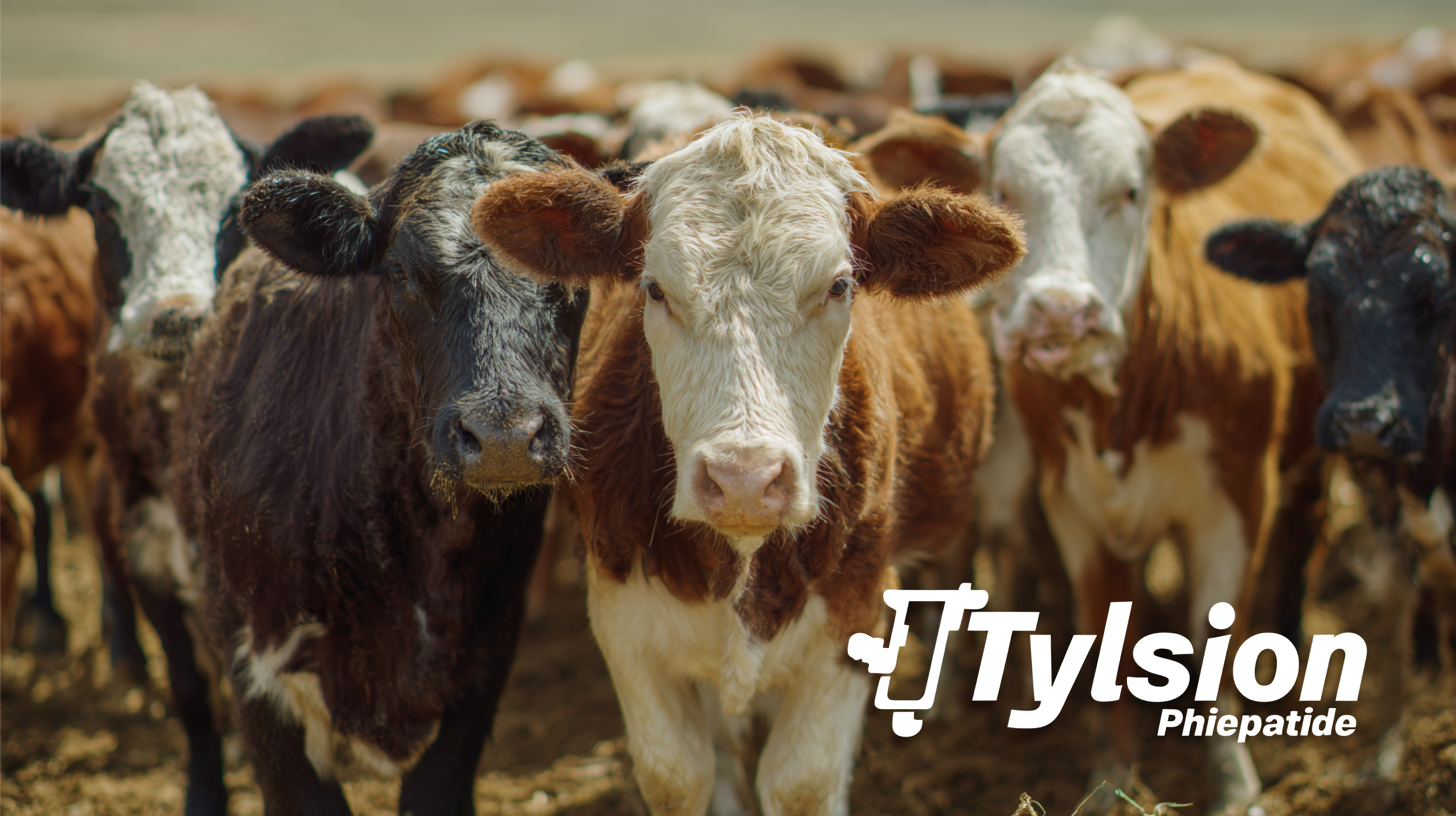Exploring Effective Alternatives to Best Tylosin Phosphate for Livestock Health
In the realm of livestock health, Tylosin Phosphate has long been recognized for its potent antibacterial properties, making it a go-to choice for many farmers and veterinarians. However, as the industry evolves and the concerns surrounding antibiotic resistance and sustainable farming practices grow, there is an increasing demand for effective alternatives that maintain animal welfare and productivity without compromising food safety.
 This blog aims to explore various alternatives to Tylosin Phosphate, highlighting their effectiveness, safety profiles, and potential benefits for livestock health. Additionally, we will delve into criteria for selecting high-quality manufacturers of these alternatives, ensuring that the products meet the highest standards of quality and efficacy. Join us as we compare these emerging solutions and guide livestock producers toward informed decisions that could enhance animal health and overall farm sustainability.
This blog aims to explore various alternatives to Tylosin Phosphate, highlighting their effectiveness, safety profiles, and potential benefits for livestock health. Additionally, we will delve into criteria for selecting high-quality manufacturers of these alternatives, ensuring that the products meet the highest standards of quality and efficacy. Join us as we compare these emerging solutions and guide livestock producers toward informed decisions that could enhance animal health and overall farm sustainability.
Innovations in Livestock Health: Alternatives to Tylosin Phosphate in 2025
As the livestock industry continues to evolve, the search for effective health supplements is paramount. Tylosin Phosphate has long been a go-to antibiotic for promoting growth and preventing disease in livestock. However, growing concerns over antibiotic resistance and sustainability are driving researchers to explore innovative alternatives. By 2025, advancements in biotechnology and feed additives are anticipated to reshape livestock health management significantly.
One promising alternative lies in the use of natural plant extracts, which have shown antibacterial properties and can enhance gut health without the negative side effects associated with antibiotics. Probiotics and prebiotics are also gaining traction, as they improve animal microbiomes and boost immune responses, leading to healthier livestock overall. Additionally, essential oils are becoming popular for their ability to reduce stress and enhance feed efficiency.
As the industry moves towards more sustainable practices, these alternatives not only promise improved health outcomes for livestock but also align with consumer demands for antibiotic-free products.
The Impact of Antimicrobial Resistance on Livestock: Addressing the Challenges
Antimicrobial resistance (AMR) poses a significant threat to livestock health, complicating the management of infectious diseases in farm animals. The overuse of antibiotics, including Tylosin Phosphate, has accelerated the emergence of resistant bacterial strains. As these pathogens evolve, not only does the effectiveness of traditional treatments wane, but the potential for zoonotic transmission to humans increases, posing serious public health risks. Addressing these challenges calls for a multi-faceted approach that promotes judicious antibiotic use and innovative alternatives in veterinary medicine.

To mitigate the impact of AMR on livestock, it's essential to explore effective alternatives to conventional antibiotics. Incorporating probiotics, prebiotics, and phytogenics into animal diets has shown promise in enhancing gut health and boosting immunity without contributing to resistance. Furthermore, adopting advanced management practices, such as improved biosecurity measures and vaccinations, can help reduce the prevalence of infections that necessitate antibiotic use. By prioritizing sustainable practices and embracing new technologies, the livestock industry can work towards a healthier future, ensuring both animal welfare and food safety while combating the rise of antimicrobial resistance.
Emerging Natural Additives: Their Role in Enhancing Livestock Immunity and Growth
As livestock producers seek more sustainable and effective ways to boost animal health, emerging natural additives are gaining attention for their potential to enhance immunity and growth. Unlike traditional antibiotics such as Tylosin Phosphate, which may lead to antibiotic resistance and residues in the food chain, natural alternatives offer a safer and more environmentally friendly approach. Ingredients derived from herbs, spices, and other plant-based sources have demonstrated promising results in strengthening the immune system, aiding digestion, and promoting overall well-being in livestock.
Research has shown that natural additives like essential oils and probiotics can stimulate beneficial gut bacteria, which in turn improves nutrient absorption and boosts immune responses. These additives can help reduce the incidence of disease outbreaks and enhance growth rates, ultimately leading to healthier animals and more productive farms. Moreover, the shift towards these natural options aligns well with consumer preferences for cleaner and more sustainable animal products, making it a win-win situation for both producers and consumers alike. As the industry continues to evolve, the role of natural additives in livestock health will likely become increasingly vital.
Evaluating the Economic Benefits of Tylosin Alternatives in Animal Husbandry Practices
The veterinary landscape is increasingly focused on the economic benefits of alternatives to traditional antibiotics like Tylosin Phosphate in livestock health management. With the alarming rise of antibiotic resistance, alternative treatments are not merely desirable but necessary to ensure sustainable animal husbandry practices. Recent studies emphasize the growing role of innovative therapies, such as phytobiotics and probiotics, which have shown promise in enhancing animal health without contributing to resistance. By adopting these alternatives, farmers can not only improve livestock productivity but also reduce their dependence on conventional antibiotics, thereby minimizing the risk of regulatory scrutiny and market restrictions.
Moreover, the economic implications of integrating these alternatives extend beyond mere health benefits. Evaluating the impact of vaccines and non-antibiotic treatments, such as enzyme-based solutions and nutritional supplements, reveals a significant potential for cost savings. For instance, maintaining herd health through these methods can lead to reductions in veterinary expenses and improved growth rates, translating into higher profit margins for producers. The shift towards these alternative strategies reflects a proactive approach to livestock management that aligns financial viability with responsible agricultural practices, paving the way for a healthier industry that prioritizes both animal welfare and economic sustainability.
Checklist for Farmers: Implementing Effective Alternatives for Optimal Livestock Health
Implementing effective alternatives to Tylosin Phosphate is essential for maintaining optimal livestock health. Farmers should first assess their current management practices, focusing on nutrition, biosecurity, and stress management. An examination of diet quality and formulation can reveal opportunities to enhance animal health through targeted nutritional interventions. Incorporating probiotics, organic acids, and essential oils can support gut health, bolstering the immune system and improving overall performance.
Next, biosecurity measures must be evaluated to reduce disease transmission. Farmers should establish stringent protocols for animal introduction, sanitation, and herd monitoring. Regular veterinary check-ups and vaccinations play key roles in preventing outbreaks. Moreover, fostering a low-stress environment through proper handling and facilities can significantly impact livestock health and productivity. By integrating these strategies, farmers can create a holistic approach to livestock management, ensuring optimal health and productivity without relying heavily on antibiotics like Tylosin Phosphate.






